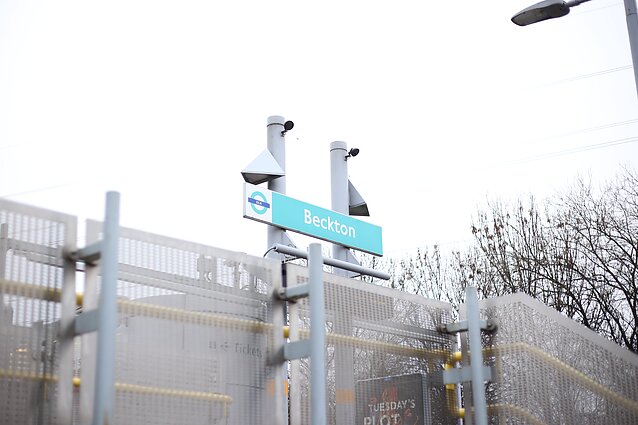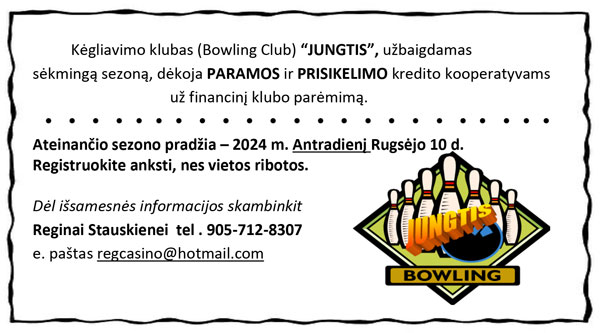
After Lithuania joined the European Union, a great number of Lithuanians travelled to England to work and send money home in difficult economic times. There must have been quite a few Lithuanians there – East London’s Beckton was once nicknamed “Bektoniškės” and “Little Lithuania” due to its large Lithuanian diaspora. Following Brexit and rising rental prices, the Baltic face of the area has been changing.
Beckton still hosts a Lithuanian restaurant, Bernelių užeiga, as well as a Lithuanian school. The epicentre, however, is a supermarket that houses a grocery and flower shop on the ground floor, with the first floor dedicated to a Lithuanian cafe, jewellery shop, beauty salon, bookshop and a law firm.
The Knygnešys (“book smuggler”) shop was opened in 2007 by Lina Garnytė before being permanently based in Beckton in 2008. There are now over 16,000 different titles available there in Lithuanian. As part of the cultural programme, the bookshop also hosts various talks and events, such as book launches, educational lessons for children, small concerts, and guest speakers. Various well-known Lithuanian authors have presented their works there, including Nijolė Narmontaitė, Nomeda Marčėnaitė, Beata Nicholson, Kristina Sabaliauskaitė, and Andrius Tapinas. According to Garnytė, it’s not easy to maintain the Lithuanian bookstore, but being in the Lithuanian shopping centre helps.
The shopping centre is also home to a legal firm, separated from the bookstore by a glass wall. “Within four to five months of working here, it became clear that there was a real need for legal services, people needed help with certain documents,” said Laura Nenartavičienė, one of the founders of the company. “The main issues are divorce, powers of attorney, inheritance, pensions. There is also a small percentage of people who don’t speak English, even though they have been living here for many years.” Beckton has been favoured by Lithuanian émigrés for many years. Naturally, newcomers would settle wherever there were more Lithuanians, but now the Lithuanians are scattered. Lithuanians go there to eat, shop and get haircuts, but there are fewer Lithuanians living in Beckton than before, said the firm’s cofounder Sandra Širvienė.
 The area used to be more remote, but over the years it has become more accessible to central London, meaning rental and property prices have gone up. Lithuanians began moving further south of Beckton.
The area used to be more remote, but over the years it has become more accessible to central London, meaning rental and property prices have gone up. Lithuanians began moving further south of Beckton.
Aiva Ivanoviene has lived in Britain for 15 years. For the past nine years, she has worked at a beauty salon in Beckton. The majority of her clients are Lithuanians, but the number of Romanian, Ukrainian and British clients is growing.
Rev. Petras Tverijonas, a priest who has lived in London for almost 25 years, is sceptical about Beckton deserving the Little Lithuania title. According to him, people started referring to “Bektoniškės” around 2007 when Lithuanians started to travel and work freely in the European Union. Up to 8,000 Lithuanians then settled in Beckton. At the time, there was even flag-painting rivalry between Brits and Lithuanians at a local park. The Lithuanian tricolour would be sprayed over the colours of the English St. George flag and vice versa, but he said that now there is no more of this “play-fighting”.
In his view, Beckton has never been an exclusively Lithuanian district, and it’s a myth that you could speak Lithuanian everywhere you went. Beckton, like other areas of East London, was attractive at the peak of Lithuanian emigration to the UK because of the lower rental prices, and the easy commute to work.
The change was mostly spurred by the financial crash of 2008. Since that crisis, Britain has not recovered, a large number of wealthy people from all over the world invested in London property, while salaries for Lithuanian builders and other professions were stagnating, so they had to go further afield to buy their own home, according to Tverijonas. Lithuanians are moving both to Lithuania and to other parts of England, he added.
Even if Beckton is no longer an epicentre for Lithuanian émigrés, there are still about 300,000 living in Britain, most of them in London.






























